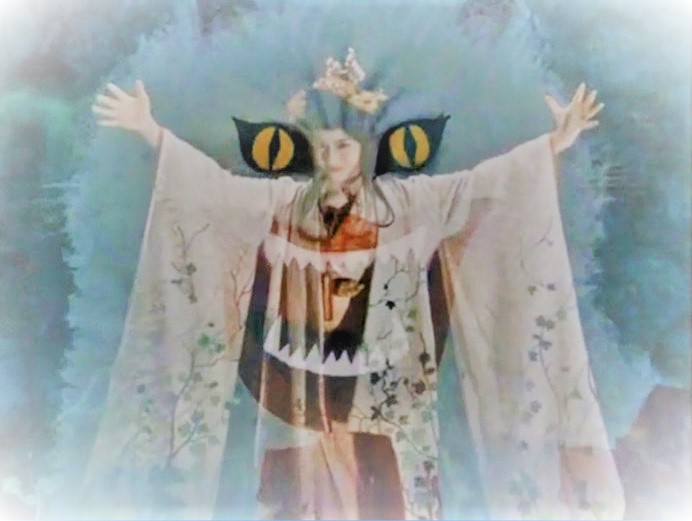
In the interest of promoting the same utter confusion I experienced upon my first viewing of Hausu, I’m keeping this spoiler-free.
Japanese cinema, at least in my experience, is usually at least a little quirky, and those quirks often manifest themselves in ways that I, as an American viewer, would never expect. Take 2016’s Your Name for example, one of the highest grossing films of all time in Japan. That animated film made my best-of-the-year list, and it’s a relatively high-brow take on the Freaky Friday body-swap scenario. It’s an emotionally complex drama, and yet for all its art-house leanings, it still contains some cutesy comic relief that feels really, really out of place, and your tolerance for that will likely affect your enjoyment of the film. In American cinema, particularly action films, comic relief is often relegated to overweight men, only tangentially related to the plot, spouting unfunny one-liners about boobs, so I think of Japan’s over-the-top leanings as equivalent to that trope.
Japanese cinema also has a penchant for the most melodramatic melodrama one can possibly imagine. 1977’s Hausu takes Japan’s aforementioned styles of comedy and melodrama, and turns them up to 11.
Hausu came about as the result of one Japanese film company’s frantic attempt to capitalize on the box office success of Jaws, of all things. The producer, Nobuhiko Obayashi, took a number of ideas that came directly from his very young daughter, and approached a screenwriter to turn them into a script. This really, really shows in the final product.

The script was stuck in development for a few years, and it was finally released in 1977, over two years after Jaws. Financially, the film was a major success in Japan, although critics were rather unkind. It became something of a cult film in America, and after several notable directors became vocal about Hausu’s influence on their work, it was given an official American release in 2009. The American re-release received far more positive reviews, and Hausu was even picked up by the Criterion Collection.
Criterion is known for releasing hard-to-find foreign and/or art-house films, and most of them tend to be highly-respected works from directors like Ingmar Bergman or Roman Polanski. Every once in a while, Criterion makes an exception to its trend of releasing only films that cater exclusively to serious film snobs. For example, Michael Bay’s Armageddon is a part of the collection for its cultural significance (I guess.) There’s also Equinox, a shoddy no-budget horror film that’s almost impossible to watch, and to this day I have no idea how it fits into Criterion. Hausu is a film I’ve always thought of as a Criterion outlier, but the more I think about it, I believe Criterion is precisely where it belongs.
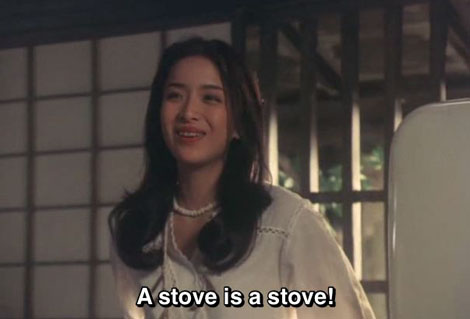
When I first saw the film, I spent most of the first scenes wondering just how “serious” it was meant to be, and it’s certainly hard to get a read on at first. It begins as if it were setting up a really awful coming-of-age drama, and the dialog is beyond awkward. What makes these early scenes notable are the sets, which are oddly surreal, and almost feel out-of-place in the context of the rest of the film.
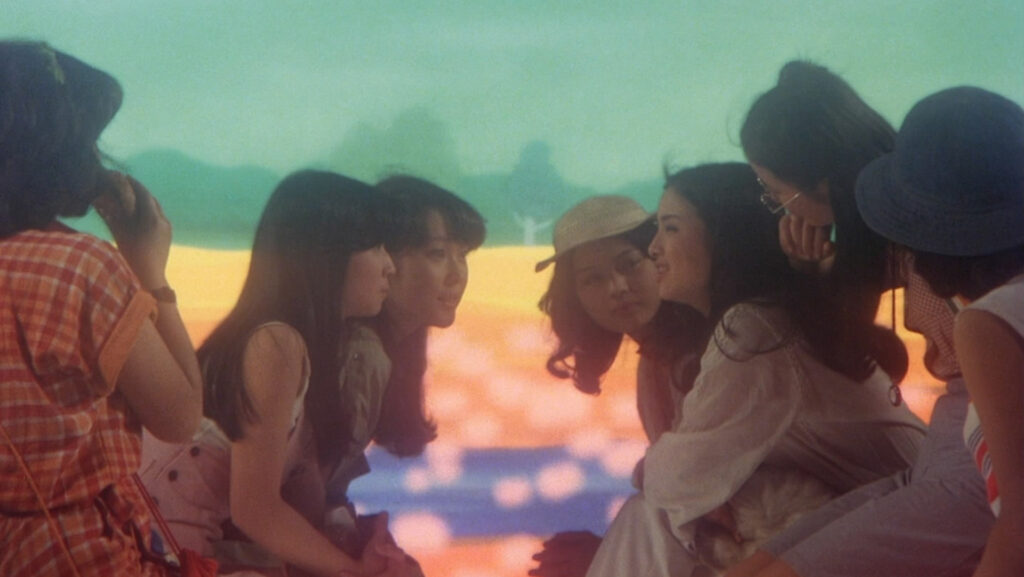
Hausu is about a young girl named Gorgeous whose mother died before the events of the film. Her father comes home one day with a new wife, and Gorgeous is having none of that. Feeling neglected, she writes to her aunt and requests to spend the summer at her mansion in the country. Her aunt agrees, and Gorgeous invites her named-after-their-own-trope schoolmates Mac, Melody, Prof, Sweet, Fantasy, and Kung Fu. Strange events begin to unfold when they arrive, and to further describe them would be doing you a serious disservice.
When I say “strange”, don’t think that I mean this film is just a little off. Every second of Hausu is goddamn balls-out crazy in ways only the Japanese would accept. To think that this was a blockbuster film in 1970s Japan is absolutely absurd.
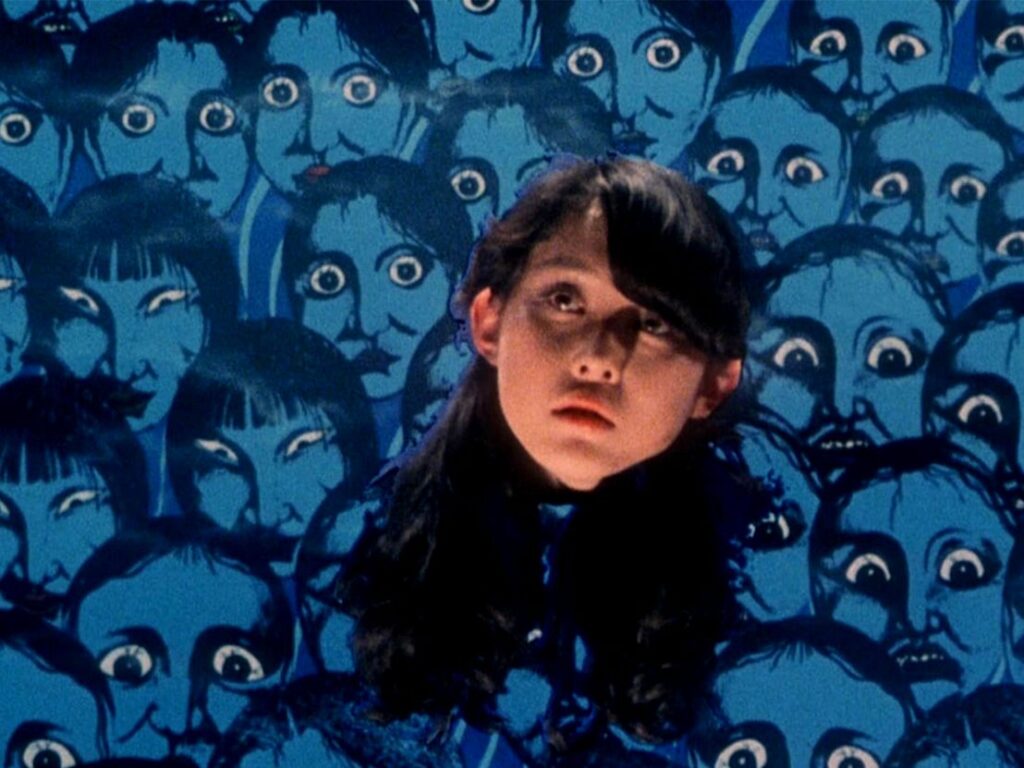
If you were someone who lived in Japan in the 1970s, some of the more outlandish aspects of Hausu would be far easier to accept simply because of their prevalence in cinema of the era. With that in mind, it’s no wonder this wasn’t a critical darling in its home country. Still, the film is bizarre even by Japanese standards, and the extent to which it is a “horror-comedy” rather than a straight horror film is hard to gauge without considering the cultural factors at play.
To boil that down, showing this to an American audience that isn’t as familiar with Japanese cinema is going to elicit confusion and ultimately laughter, the latter being amplified by a lack of immersion in the film’s cultural context. At the end of the day, can we really say that Hausu is a comedy when this is taken into consideration?
Ohhhhhh yes. Yes we can.
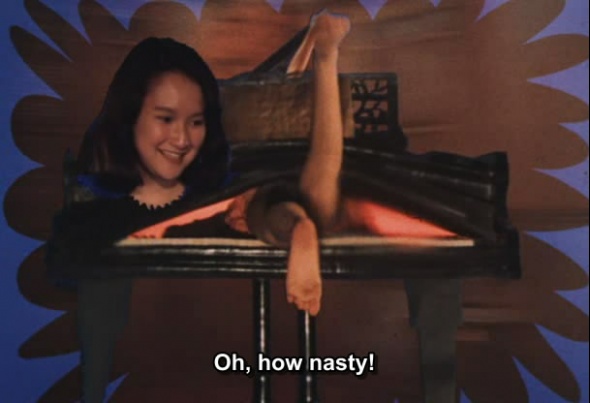
There are plenty of moments in the film that indicate this is intentionally funny, and not funny because of its strange and childish nature or lack of quality. There’s a young girl named Kung Fu, and she fights off danger with her flying kicks. That’s intentional comedy even outside of any cultural context.
One underlying theme, which I’m not going to go into much detail about because it involves spoilers, actually prompted the producer to change the name of the film to its English title, House, upon release, for the sake of sensitivity.
You see, Hausu’s plot is ultimately tied to the bombings at Nagasaki and Hiroshima.
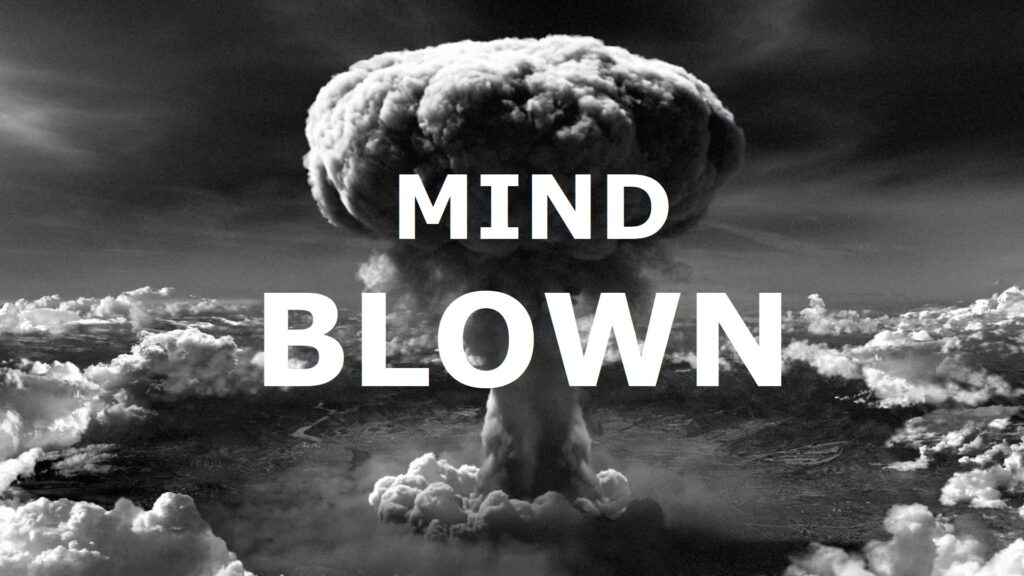
Now that you know this, consider the bright colors, the unbearably cute characters, the child-like nature of the events that unfold, and the cartoonish humor throughout. Japan is only 30-ish years removed from World War II. Imagining that someone would find this in poor taste is no longer a stretch. It’s not quite as insensitive as releasing The Day The Clown Cried (the unreleased Jerry Lewis film about a clown in a concentration camp) in post-WWII Germany, but it’s awfully close. Then again, perhaps nothing about Hausu is insensitive, because it does manage to illustrate the hideous effects of WWII on post-war Japan. That’s quite a statement when talking about a movie in which a character is eaten by a piano.
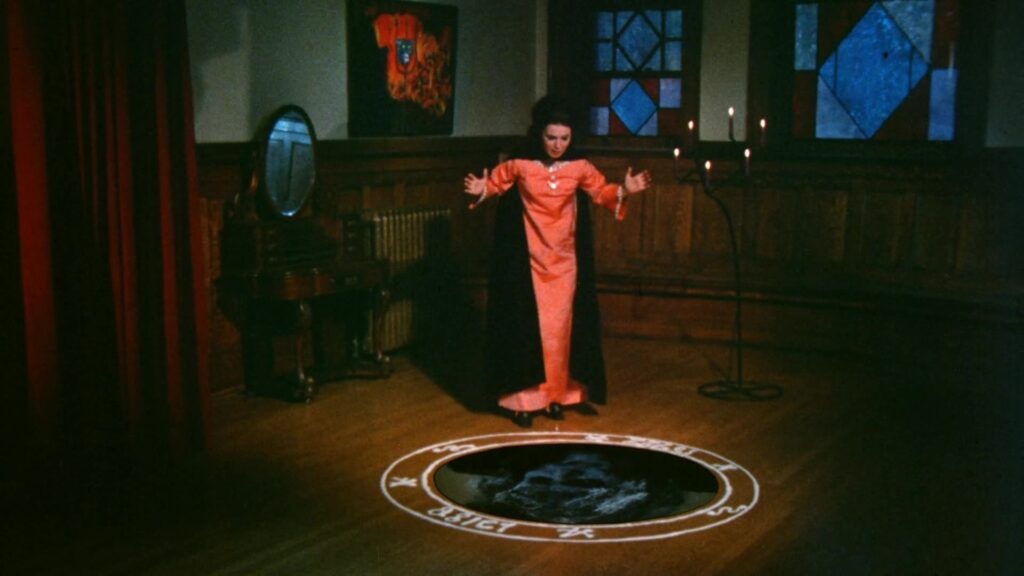
I enjoy every baffling moment of Hausu, and in spite of its reputation as a so-bad-it’s-good film, I believe there is real quality and sincerity here. It’s a silly, upbeat film that ultimately has a profoundly sad, yet relevant message.
9/10